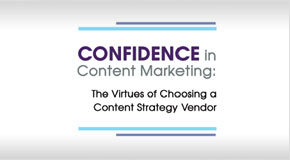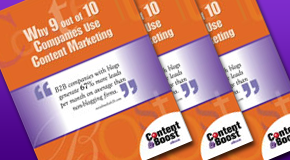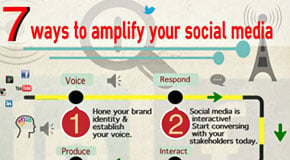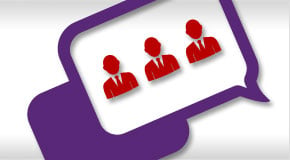As a social media manager who manages many corporate campaigns for my agency’s clients, I can’t help but sympathize with the poor soul who handles United Airlines’ social media accounts.

I can imagine that person driving to work Monday morning, listening to Gary Jules’ “Mad World” on repeat, dreading what the day would hold – all because of a total and incomprehensible lack of basic customer service.
By now, nearly everyone has watched the infamous viral video of a United Airlines passenger getting “voluntarily” yanked out of his seat by police, his face smashing into the armrest in the opposite row. Gasping passengers aimed their smartphone cameras at the ordeal, but no one with the United Airlines staff seemed to realize how bad the situation was – and certainly not how bad it was about to become.
They soon found out. News organizations reported on this PR disaster, social media skewered the company relentlessly, and competitors gleefully piled on.
And what’s been happening with those folks who manage the United Airlines’ social media? Just two posts have appeared on the United Airlines Twitter account since the incident. The first was a much-derided non-apology apology from CEO Oscar Munoz, who expressed regret for having to “re-accommodate these customers.”
The second came a day later, when the first post failed to capture the essence of what an apology is supposed to be. This time the CEO assured us that United would take “full responsibility and will work to make it right.” It was signed, simply, Oscar.
Although United Airlines’ Twitter has gone mum, the rest of the social media world hasn’t been so silent. Browse through United’s tweets prior to the incident and you’ll discover angry Twitter users finding clever and creative ways to weave the notorious incident into unrelated conversations. The results range from hilarious to savage.
But what would you expect? Any company that thinks this type of mistake (read: abhorrent, boneheaded, violent violation of the customer/business relationship) will go unpunished by the internet (read: actual human beings) is living in a different century. Consumers are more active now than they’ve ever been. They expect more than they ever have before. And they arguably have greater power than ever before because of social media.
Social media has created an avenue for consumers to make their voices heard, much to the detriment of companies who choose to put customer service on the back burner in favor of the bottom line.
Social media was never meant to be a place where customer service issues were handled. That’s just the way things evolved, at least in part because companies avoid dealing with problems their policies create until the collective voices rain down on them via their Facebook and Twitter profiles.
Can you blame customers who feel cheated or wronged for taking the only recourse they know how? I certainly can’t. Companies have a duty to service their customers in a fair and just way. Yes, mistakes can happen and in those cases customers will do their best to take to traditional means to get their problems solved. If those avenues don’t work or are too inconvenient, to Twitter they’ll go.
What’s really unfortunate from a PR standpoint – and social media manager standpoint – is that the United Airlines situation could have been avoided.
United Airlines needed four people off that flight. They asked for volunteers, offering vouchers as enticement, but couldn’t clear the seats they needed. So they chose passengers themselves and ordered them off the plane. When the doctor, already in his seat, declined to leave the police were brought in and social media infamy followed.
What should have happened instead? The airline could have simply raised their offer for vouchers. They could have enticed someone to give up their seat by other means. A volunteer could have been found, if only they’d been willing to pay for it.
This incident should remind companies that they need to take a hard look at the policies they have in place when dealing with customer disputes. They need to train their employees to identify and disengage when their policies are causing needless escalations.
They should do this because it will help them avoid a PR disaster but, more importantly, because it’s the right thing to do. The viral videos, hashtags, posts, articles, and subsequent hit to their stock prices are just an after effect.
So let’s make it happen, brands. Let’s come together for a united effort to do right by our customers. Your customers—and the folks who manage your social media accounts —will thank you.
About Jay York
Jay York is senior social media strategist for EMSI Public Relations (www.emsincorporated.com), a firm that represents corporations and experts in a wide array of fields such as business, health, food, lifestyle, politics, finance, law, sports and entertainment. York, whose extensive experience in social media marketing dates back to the early days of MySpace and LiveJournal, helps EMSI clients make sense of the vast realm of digital marketing, from creative social media to overall marketing strategy.















